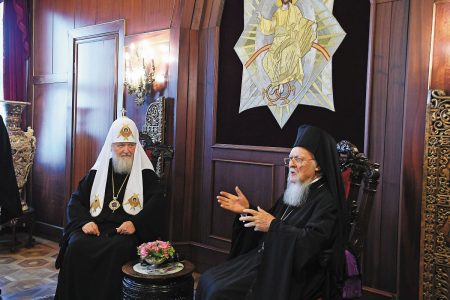Recep Tayyip Erdogan’s desire to be the absolute ruler of Turkey was confirmed in the most celebratory, for himself, manner. Not only was he elected president-monarch, but in addition, with his far-right nationalist collaborators, he controls the legislature, with whatever powers it may have left. The Turkish president will have absolute control of the state, with no institutional checks and balances.
With his new, five-year term, Erdogan will become the longest serving leader of Turkey, surpassing even the founder of the Turkish Republic, Kemal Ataturk. He will be able to appoint and fire ministers and state functionaries and issue executive orders that will have the force of law, and he will have greater control over the judiciary.
His absolute domination is naturally a great defeat for secular Turkey, for the minority, as it turned out, that wants a European democracy.
Obviously, the electoral campaign was problematic and uneven for the opposition, as EU foreign policy chief Federica Mogherini conceded. The controlled media devoted ten times more time to Erdogan than to the opposition.
It is clear, however, that despite the economic crisis and the state of emergency, despite the thousands of prisoners and the tens of thousands of laid off workers, the majority of Turks continues to prefer and trust the Turkish president.
The question for Greece and the wider region is how Erdogan will handle his absolute power from now on. The question is whether he will continue his aggressive rhetoric towards Greece, whether he will continue to hold hostage the two Greek army officers and demand extradition of the eight Turkish military officers who sought asylum in Greece, and whether he will continue the policy of “grey zones” in the Aegean.
Absolute power usually is not a good advisor, all the more so when the opposition unleashes nationalist rhetoric.
Beyond the one-man rule of Erdogan, the big problem with Turkey is the revival of expansionism and a neo-Ottoman ideology. On sees this in his aggressive stance towards the Kurds in Syria and in his relations with traditional allies.
What is certain is that we are dealing with an extremely powerful leader, in an ever more problematic – at least economically – Turkey.
It remains to be seen how he will use the absolute power that his compatriots gave him, with no checks and balances.



